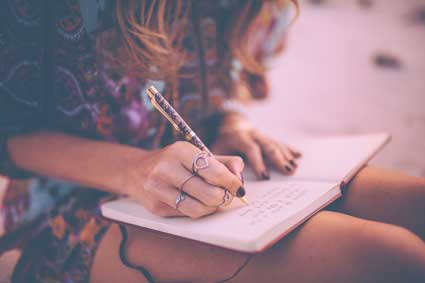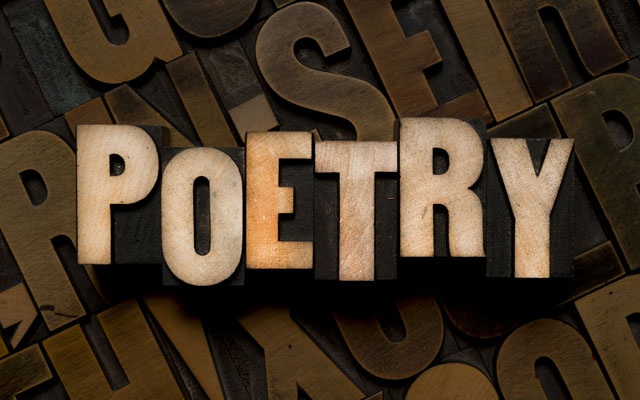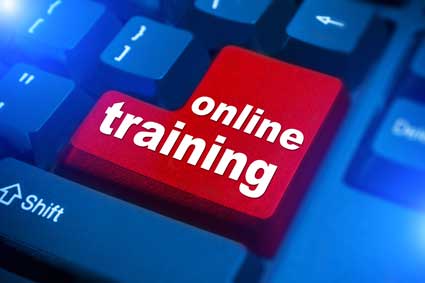Fact Checking and Research Skills in Journalism
Journalists spend a lot of time immersed in information in pursuit of a story. This is otherwise known as researching, and it is defined as systematically examining resources and materials in order to determine the validity or authenticity of information. The purpose of research is not simply to find facts and statistics, but to uncover reliable data. It is the bread and butter of the investigative journalist – which is the hope of most writers as they pursue their career. Who does not secretly want to uncover illicit and earth shattering news that could make a name for themselves? Of course, that is not the only reason to go into journalism. As we discussed in the section on ethics – journalists naturally want to be the watchdog of government and business to ensure they are meeting their social responsibilities. Still …
Let us consider some of the best and basic advice on conducting research.
Basics on Research
If you are researching a topic, the best resources are peer-reviewed academics. These are materials that have been reviewed by experts in the field of inquiry you are pursuing, and have weighed in on the validity of an article. No matter what subject you are investigating, there are peer-reviewed journals that are common to that field and are the best option for background information or educating yourself on a subject.
For the most part, these are not free resources. You may have to subscribe to them through a university or specialty site. However, most public libraries provide access to these types of databases, gratis to their patrons, so the public library is an excellent starting point for research. In fact, many journalists make the library their "home away from home," as the atmosphere and resources are conducive to reflection and writing. Moreover, librarians are trained in the art of advanced research and are adept at manipulating sophisticated search engines. Indeed, becoming a patron of a public or university library is in the best interest of the beginning and seasoned journalist.
Common information services that are great starting points for research include InfoTrac, which offers the user business, academic, health, and reference databases with full-text articles and citations. LexisNexis is another information service that specializes in legal and medical databases, as well as current events and business; it also, provides full-text articles. ProQuest is a third, highly reputable, database that gives the user access to over 8,000 newspapers, magazines and professional and academic journals with full text articles and images. While there are many more information services available, these are the most widely used. It is advisable to spend time with a librarian who may be able to point you in the direction of other options for a particular subject you are researching.
Effective Researching Skills
Every researcher should begin by defining the problem they are investigating. The more specific you are, the more accurate the information you will obtain – more quickly. For example, perhaps you are interested in researching the number of female astronauts who have been in the space program. It is a specific subject that begs you to start by using the terms "female astronaut" and "space program" as parameters. It would be a waste of time to begin with a broader search of the NASA space program itself. That is not to say that you wouldn't find reason to broaden your search as the story develops. But if you begin with a well-defined question the information you find will be more suitable to your needs.
You then must decide the direction of the article you are writing. Will it be an overview of a topic, or more in-depth? Will you need some history, or is it only current information that will be relevant? Are statistics going to be required, or other forms of data? Are there other forms of material that would be helpful – such as company newsletters, biographies, and similar non-reference materials? Develop a framework or outline, and then start filling it in. This outline does not have to be the gospel. You may start a story in one direction and find it takes you in another altogether. But, as a reminder – be an organized writer. Tuck away tidbits that seem enticing and revisit them on another occasion, perhaps when you are stuck for a story idea – or simply because you have a driving interest in the subject.
Next, locate the information. You may do this using one or more of the information services reviewed in the previous section, and with the support of a trained librarian who may better understand how to locate materials in out of the way places you had not considered. Helpful ideas for narrowing the scope of a subject are to scan titles already written – those authors have already narrowed the topic. It is also helpful to read an encyclopedia article on the subject to get other ideas; or simply read the index of a book. That will give you a lengthy list of concepts related to the subject.
Now, comes the hard part. Read the resources and take notes. For each item, peruse it to ensure there is information you can use. If so, start by creating an entry on a notebook or word processing program that includes all of the relevant citation and bibliographic information. If you do this now, you will save yourself time later, when you go to cite your sources by not having to do a second search for the article. Once you make this a habit of your researching, you will have internalized one of the most important organizational skills of the journalist and writer. Citing resources correctly and accurately is not just important – it is imperative.
Reading and taking notes is the milieu of a student. But, long after you have graduated – and because you have chosen to enter a profession that relies on the written word as output – the written word is your input, in many cases. It is true that the more you know, the better writer you become. Information builds and insinuates across topic areas. Be an avid note taker and you will be an exceptional journalist. Also – reader, know thyself. Know what your own limitations are. If you tire of reading and researching after an hour – don't push yourself. If you need breaks, like to stand up and walk around every few minutes, have to ingest a cup of coffee with every article – make this happen for yourself. Do not make reading and writing more challenging than it has to be. Whatever it takes for you to be "in the zone" – do it. The important thing is opening the door to your special way of accessing words and ideas that you will convey through writing. Benjamin Franklin wrote at night – and some say in the nude! Ernest Hemingway wrote standing up. Mark Twain would find fault with his own writing after it was published. All in all, writing is the loneliest undertaking of all. It is formulating thoughts that are transferred to print and no one can help you – you are all on your own in that endeavor! So, reflect on habits you think will make the writing process easier and go with them.
If you are doing an article that requires a lot of background information, refer to multiple resources to ensure that you have a broad overview of the subject. It will not do to research only one resource, or two, and people who are quite familiar on the subject that you write about will be able to recognize that you have limited understanding of a topic based on how superficial the writing is – unless the aim is to only get the basic facts. Even so, your job as a journalist is to be the eyes and ears of the public. You are in charge of educating yourself on a subject so you can distill the information into meaningful bite size tidbits for the reading public.
If you are using magazine articles as a source of information, it is important to be able to distinguish between the many different kinds. The five main types are scholarly or academic, trade or professional, sensationalist, news-oriented, and popular. Each serves a purpose, although it is obvious that some will be more relevant for your purposes, as a journalist, than others. As an astute writer, you must develop an ability to evaluate the validity and reliability of the resources you intend to cite.
Finally, become expert at using databases. Sure, everyone knows about Google, and it is definitely the most popular search engine in the world. However, there is a skill to finding information and there are three pieces of advice to which the journalist should adhere on this subject. First, become familiar with, and adept at, utilizing keywords to instigate a search. Second, don't just talk the talk about Boolean Operators – know and understand their use and application. It will make the time spent in research much more worthwhile. For example, when you use the word "and" between two terms, the computer understands you are in search of information that includes two terms – such as planets and Pluto. Conversely, when you add the word "not" between two words you are telling the system to find instances of the word – but not if it includes the other word, such as "Pluto" not "planets'. If you are unfamiliar with Boolean Operators, correct this oversight. As a journalist, there is simply no excuse not to be competent in their use.
Fact Checking for Journalists
Fact checking is investigating an issue to verify the truth of a claim. Thanks to the wonder of the Internet, people who once were able to make broad and dishonest statements and then pass them off as true – such as politicians and businessmen – are now subject to entire organizations whose sole purpose is to ferret out the veracity of a claim. To state this has changed the way that politics are done would be an understatement. For example, there are a number of people who continue to claim that the President is not a natural born American citizen. However, the fact checkers have been able to trace every bit of information available on the subject, and can verify that, indeed, Obama was born in Hawaii. That just goes to show that simply because a fact has been proven – doesn't mean you can get the most hard-headed among us to believe it!
So, for the most part, the concept of fact checking has enhanced journalism. It has helped writers to validate claims and resources, making them and their work reliable and trustworthy. Not so fast, though, because there are problems with fact checking as well that the journalist should be aware of – and keep in mind while they engage in the writing process.
For instance, some journalists have taken to citing the opinions of other journalists or bloggers from multiple websites, even though the bloggers have come to markedly different conclusions. To be sure, this reflects negatively on the journalist – making him or her look sloppy in carrying out their duties. Ultimately, the fact checker must be willing to be accountable for their claims just as they expect of those whom they are investigating. Anything less makes the writer and his or her publisher unreliable, if not untrustworthy. This is not a reputation that most journalists can recover from – so caution is the better part of valor when fact checking (and writing, for that matter).
So, the following is good advice for journalists who are incorporating facts into their work, or relying on fact checkers to ensure that the information they use is correct. First and foremost, remember that facts can be easily taken out of context or skewed to support a position that it was not intended for. It is underhanded to use only a portion of a statement from an individual that misleads the reader. For example, a politician may say something like, "I do not support immigration without ensuring there is proper documentation of those who visit this country." But the reporter could shorten the statement and only print the first part which states "I do not support immigration…" This offers an entirely different viewpoint to the reader, and an incorrect one, at that. The journalist who would make a mistake of this magnitude is likely not long for the industry! Yet, that is not to say it doesn't happen.
Fact checking should also keep in mind that fact checkers make mistakes, as well. Do not be too quick to piggyback onto the claim of a fact checker without checking out their reputation -- and even doing a little investigating of your own. After all, you are, or want to be, a journalist and that is what journalists do – check the facts. When you are fact checking, you want to keep the following questions in mind: Is the claim completely true, or is it open to interpretation? And, again, what is the history of the fact checker? If they have not proven reliable, then it only makes sense to seek out another source. Anyone in the business of fact checking who is not honest and trustworthy will not be in the business for long!
Finally, there's "false," and then there's "FALSE." Learn to discern when and where this is of the greatest import in the writing industry. It is best to avoid matters of opinion, or insert your opinion into a piece (unless that is the type of writing you do), because that very often clouds the facts for the reader.
Now you are well-armed to set about researching and fact checking – and that much closer to being an exceptional journalist.





























